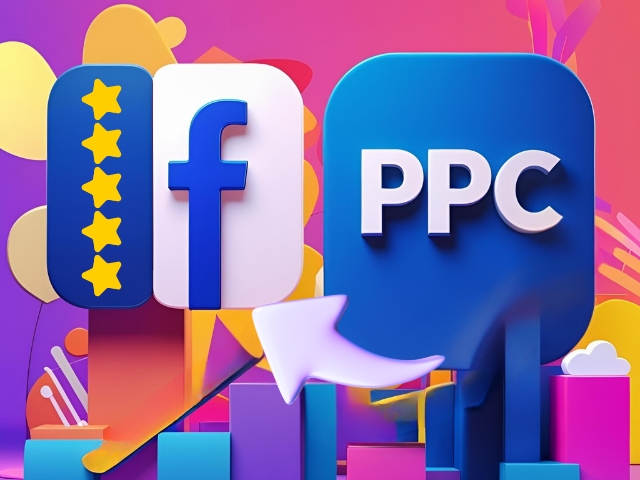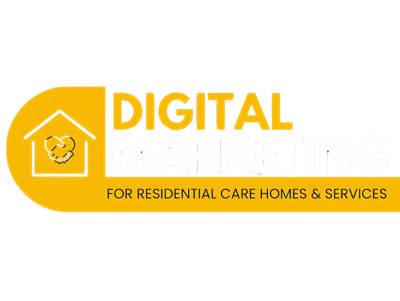
Key Takeaways
- Understanding the Goal – Local Awareness for Dementia Care Homes
- What is PPC Advertising?
- Facebook Advertising – The £1 a Day Strategy
- Targeting Within a 20-Mile Radius – Which Does It Better?
- Cost Comparison – Facebook vs PPC in Local Care Marketing
- Emotional Marketing in Dementia Care – The Facebook Advantage
- Conclusion – Which Should You Choose?
Understanding the Goal – Local Awareness for Dementia Care Homes
When marketing a dementia care home, especially within a limited 20-mile radius, it’s crucial to use the right advertising strategy.
The goal is simple: increase local visibility, attract family members of those in need of care, and build a trusted brand within the community.
Two of the most common approaches are Pay-Per-Click (PPC) and Facebook Advertising. But which performs better when budget is tight – say, £1 a day?
What is PPC Advertising?
PPC (Pay-Per-Click) is a type of digital advertising where you pay every time someone clicks on your ad. Google Ads is the most popular PPC platform, allowing you to target keywords like “dementia care home near me.”
Pros of PPC for Care Homes
- High intent traffic: People searching are usually ready to
- Location targeting through Google Maps
- Works well for emergency and urgent care
Cons of PPC
- Expensive: High competition means higher cost-per-click
- Limited personalisation or emotional
- Short window to capture
Facebook Advertising – The £1 a Day Strategy
Facebook allows you to run hyper-local ads, even with just £1 a day. It’s not about keyword intent, but about consistent visibility and emotional connection.
Benefits of Facebook Ads
- Geo-targeting by postcode or radius (20 miles easily managed).
- Ideal for awareness and trust-building
- Great for showcasing community activities, resident stories, or virtual
- Lower cost per 1,000 impressions (CPM).
Downsides of Facebook Ads
- Lower intent: Users aren’t actively searching for care
- Requires nurturing and repeated
- Needs quality visuals and
Targeting Within a 20-Mile Radius – Which Does It Better?
Both platforms allow geographic targeting, but Facebook’s precision in micro-local campaigns stands out.
You can narrow down by age, interests (such as caregivers or family roles), and even behaviour, such as recent life changes.
In contrast, Google Ads limits you to search-based location targeting, meaning you’re waiting for people to come to you, not pushing your message out.
Cost Comparison – Facebook vs PPC in Local Care Marketing
Let’s break it down:
| Platform | Average Daily | Targeting Type | ROI Potential Cost |
| £1–£5 | Behavioural + Location | High over time (brand awareness) | |
| PPC (Google) | £10–£30 per click | Search intent + Location |
High for urgent care queries |
For a tight budget and a long-term local strategy, Facebook wins on cost-effectiveness and brand-building.
Emotional Marketing in Dementia Care – The Facebook Advantage
Facebook is designed for storytelling.
In care homes, emotional marketing builds trust and connection.
Share videos of staff interactions, testimonials from families, or resident birthdays – these resonate more than a text ad on Google.
PPC is transactional. Facebook is relational. For a service rooted in compassion and trust, Facebook wins.
Conclusion – Which Should You Choose?
If you have a limited budget and want to build local brand awareness, then Facebook’s £1 a day strategy provides a fantastic return on minimal spend.
However, if you need fast leads, especially for emergency care or respite bookings, PPC can provide quick traffic – though at a higher cost.
Best strategy?
Focus on maintaining a consistent and engaging Facebook presence to build strong local awareness and community trust.
Use PPC only occasionally to support specific campaigns or promotions if budget is avaialbe, but let Facebook be your core platform for long-term growth.
Facebook = Social Proof + Visibility
Unlike PPC, where your ad disappears once your budget runs out, a successful Facebook post keeps working for you.
- Comments, likes, shares, and testimonials stay visible
- Popular posts can go viral locally
- Photo albums of events and celebrations create a living archive of trust
FAQ Section
What’s better for local dementia care marketing – Facebook or PPC?
Facebook is better for awareness and trust-building, while PPC is more suited for urgent, action-driven traffic.
Can I run effective Facebook ads for just £1 a day?
Yes! You can target a 20-mile radius and gradually build visibility and engagement with consistent posts and ad creative.
How do I target family caregivers locally?
Facebook allows targeting by interests, behaviours, age, and even job roles (like nurses or social workers), making it perfect for reaching decision-makers.
Are Google Ads too expensive for care homes?
They can be costly, especially for competitive keywords. Start small and monitor your ROI closely.
Can I use both platforms at once?
Yes, combining both gives you awareness (Facebook) and direct conversions (PPC) for a balanced strategy.
Care Home Marketing Disclaimer
Care Home Digital Marketing provides marketing services specifically designed to support care homes with their digital presence, branding, and promotional strategies.
We are marketing specialists, not care providers or healthcare professionals. Nothing on this website, in our content, or within our services should be interpreted as advice or guidance related to the delivery of hands-on care, medical treatment, or clinical practices.
All marketing materials and campaigns created by us are intended solely to enhance visibility, engagement, and communication for care sector businesses.
While we are not involved in the provision of care, we do have personal experience of loved ones living with dementia, as well as those we have sadly lost due to dementia-related illness.
This personal connection drives our deep respect for the care sector and fuels our commitment to helping care homes share their vital work with the world.
For matters relating to the delivery of care, we strongly advise consulting qualified care professionals or relevant regulatory bodies.
